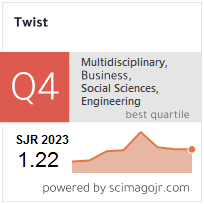Transforming Islamic Teacher Education through Local Wisdom and Global Skills
Keywords:
Islamic teacher education, Local wisdom, Global skills, Educational transformationAbstract
This study aims to formulate a transformation strategy for Islamic teacher education through an integrative approach that combines local wisdom and global skills. In the context of 21st-century educational challenges, mastery of digital literacy, cross-cultural communication, and technology-based collaboration has become a crucial demand for professional teachers. However, globalization without a solid foundation of local values risks cultural disorientation and spiritual decline. Employing a qualitative approach with an exploratory case study design, this research was conducted at an Islamic Teacher Education Institution (LPTKI) that has initiated various integration efforts between local cultural values and global competencies. Data were collected through in-depth interviews, participatory observation, and document analysis, then thematically analyzed. The findings reveal that local values such as mutual cooperation, deliberation, etiquette, and community spirituality significantly contribute to shaping the character and professional ethics of prospective teachers. On the other hand, while global skills are widely acknowledged as important, their implementation is still hampered by infrastructure limitations, insufficient training, and unsystematic curriculum integration. This research concludes that the ideal model for Islamic teacher education is one that harmonizes ethical and spiritual local values with modern pedagogical skills in a contextual manner. Such a model requires flexible curriculum design, context-based reflective training, and a learning evaluation system that balances cognitive, affective, and psychomotor domains. Consequently, teachers are not only expected to become competent professionals but also transformative agents rooted in local cultural values and equipped to address global challenges.
Downloads
Downloads
Published
Issue
Section
License
Copyright (c) 2025 TWIST

This work is licensed under a Creative Commons Attribution-NonCommercial-ShareAlike 4.0 International License.











